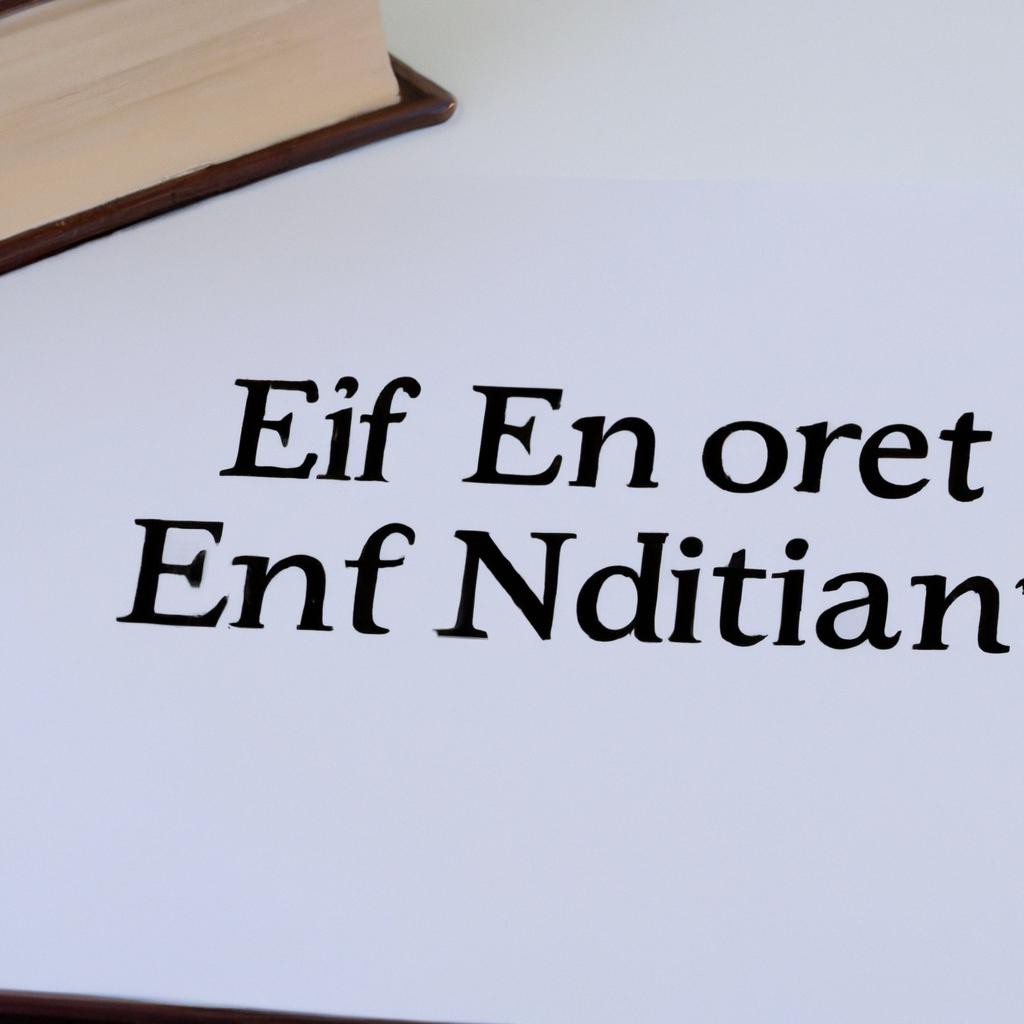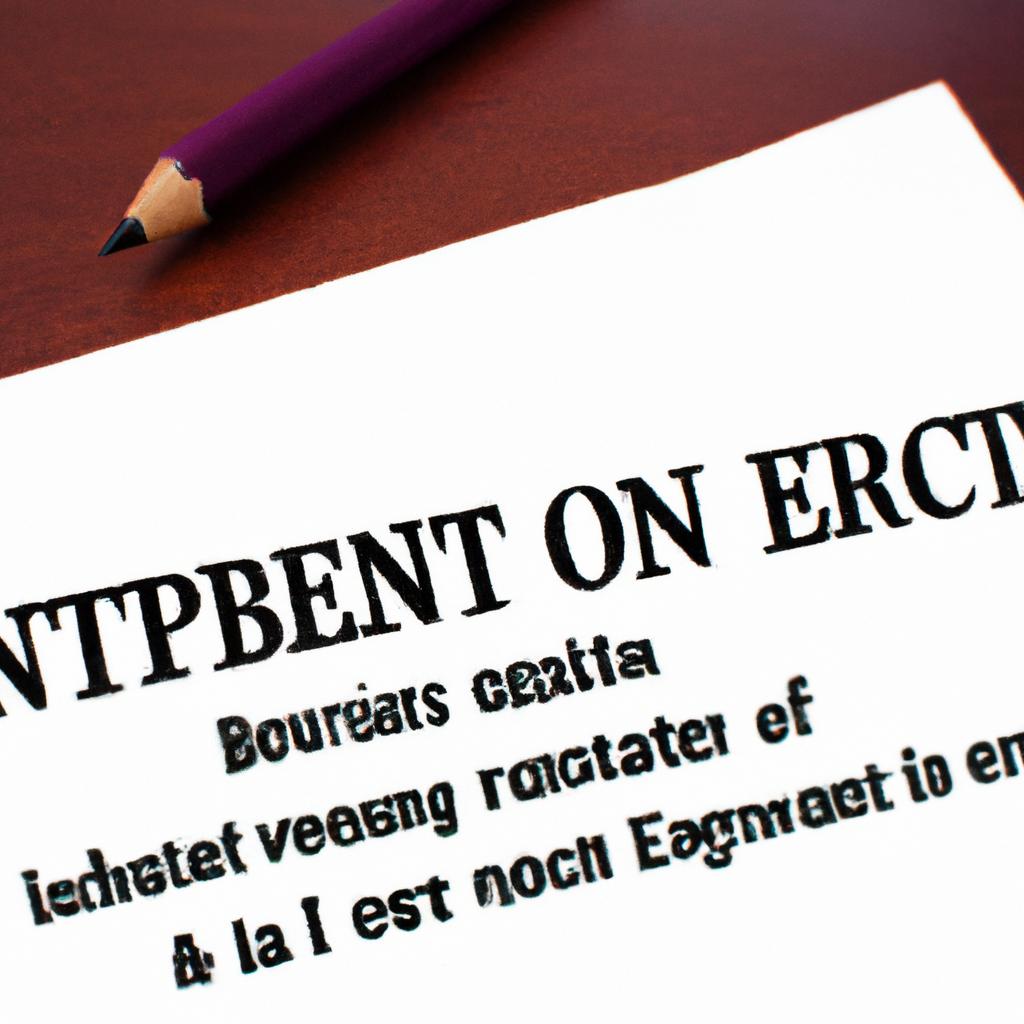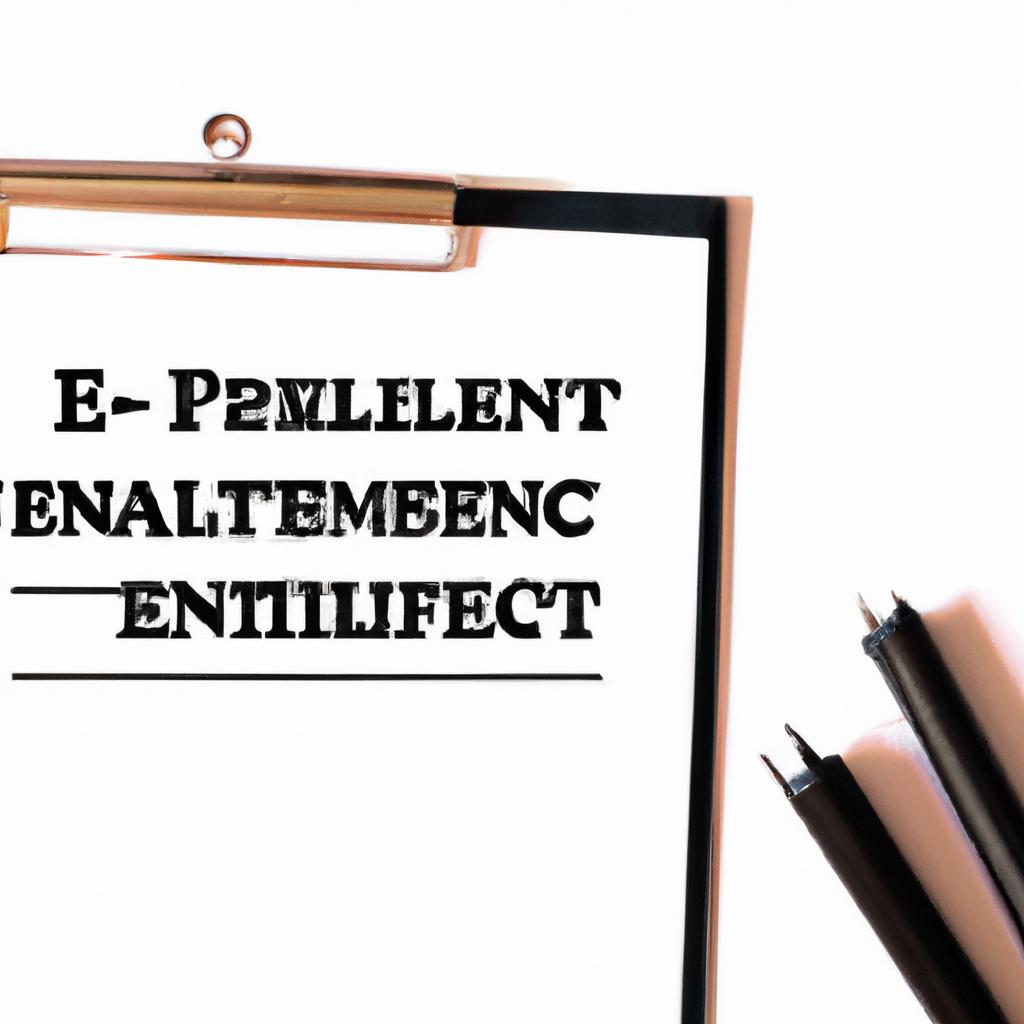In the intricate realm of probate proceedings, the concept of “ein for probate estate” stands as a pivotal component in navigating the complexities of administering an estate. As seasoned practitioners in the field of estate planning and probate law, the team at Morgan Legal Group in New York City understands the critical importance of unraveling the nuances of this nuanced topic. Join us as we delve into the intricacies of ein for probate estate and its significance in the realm of estate administration.
Understanding the Role of Ein for Probate Estate
When handling a probate estate, it is crucial to understand the role of an Employer Identification Number (EIN). An EIN is a unique nine-digit number assigned by the IRS to business entities for tax filing and reporting purposes. In the context of a probate estate, an EIN is necessary for several reasons:
- Identification: An EIN helps to distinguish the estate as a separate entity for tax purposes.
- Tax Reporting: It is used for filing income tax returns, reporting estate income, and paying any taxes owed by the estate.
- Banking: An EIN is required for opening a bank account in the name of the estate, allowing for proper management of estate assets and liabilities.
Furthermore, obtaining an EIN for a probate estate can streamline the administration process and ensure compliance with tax laws. It is recommended to seek the guidance of an experienced estate planning attorney to navigate the complexities of probate and properly address EIN requirements.

Key Considerations for Obtaining an Ein for Probate Estate
When it comes to obtaining an EIN for a probate estate, there are several key considerations to keep in mind to ensure a smooth and efficient process. One important factor to consider is the type of probate estate you are dealing with – whether it is a simple estate or a more complex one with multiple assets and beneficiaries.
Additionally, it is crucial to gather all the necessary documentation and information required to apply for an EIN, such as the decedent’s Social Security number, death certificate, and a copy of the will. It is also important to accurately fill out the EIN application form and provide all the required details to avoid any delays in the process.

Benefits of Properly Utilizing Ein in Probate Estate Administration
When it comes to probate estate administration, properly utilizing an EIN (Employer Identification Number) can bring a multitude of benefits. An EIN is a unique nine-digit number assigned by the Internal Revenue Service (IRS) to identify a business entity. In the context of probate estate administration, having an EIN for the estate can streamline the process and provide several advantages.
- Efficiency: Having an EIN for the estate allows for easier tracking of financial transactions, filing of tax returns, and communication with financial institutions.
- Asset Protection: Separating the estate’s assets under an EIN can help protect the personal assets of the executor or personal representative.
- Tax Compliance: Utilizing an EIN ensures that the estate is in compliance with all tax obligations, including filing income tax returns and paying estate taxes.

Ensuring Compliance and Efficiency Through Ein in Probate Estate
When it comes to managing a probate estate, ensuring compliance with legal regulations and maximizing efficiency is crucial. One way to achieve this is by obtaining an Employer Identification Number (EIN) for the estate. An EIN is a unique nine-digit number issued by the Internal Revenue Service (IRS) to identify a business entity, including probate estates. By obtaining an EIN for the probate estate, it helps streamline the administration process and ensures that all financial matters are handled properly.
Having an EIN for the probate estate allows for better organization of financial records, filing tax returns, and opening bank accounts in the estate’s name. It also helps in avoiding confusion between personal and estate finances. Additionally, having an EIN can simplify communication with financial institutions, creditors, and the IRS, making the probate process more efficient and compliant with legal requirements. Overall, obtaining an EIN for a probate estate is a simple yet effective step in ensuring smooth administration and compliance with all relevant laws and regulations.
Q&A
Q: What is an ein for probate estate and why is it necessary?
A: An Employer Identification Number (EIN) for a probate estate is a unique nine-digit number assigned by the Internal Revenue Service (IRS) to identify the estate’s tax accounts. It is necessary for filing taxes, opening bank accounts, and conducting financial transactions on behalf of the estate.
Q: How can I apply for an EIN for a probate estate?
A: You can apply for an EIN for a probate estate online through the IRS website, by fax, or by mail. You will need to provide information about the estate, such as the name of the deceased, the name of the executor, and the estate’s address.
Q: Is an EIN for a probate estate different from the deceased’s social security number?
A: Yes, an EIN for a probate estate is separate from the deceased’s social security number. The EIN is specifically for the estate’s tax purposes and does not replace the social security number of the deceased.
Q: What are the benefits of having an EIN for a probate estate?
A: Having an EIN for a probate estate allows for easier management of the estate’s finances and tax obligations. It also helps to protect the deceased’s personal information by providing a separate identifier for the estate.
Q: Can I use the same EIN for multiple probate estates?
A: No, each probate estate must have its own EIN. Using the same EIN for multiple estates can lead to confusion and potential legal issues. It is important to obtain a separate EIN for each individual estate.
Final Thoughts
In conclusion, ein for probate estate can be a complex and nuanced process that requires careful attention to detail and a thorough understanding of legal principles. By following the guidelines and seeking assistance from experienced professionals, you can navigate through this intricate landscape with confidence and peace of mind. Remember, every estate is unique, and there is no one-size-fits-all solution. With patience and diligence, you can successfully navigate through the probate process and fulfill your obligations as an executor or beneficiary. Thank you for joining us on this exploration of ein for probate estate, and we wish you success in all your probate endeavors.
 What is an EIN for Probate Estate and Why is it Important?
What is an EIN for Probate Estate and Why is it Important?
When a loved one passes away, their estate may go through a legal process called probate. This process involves settling any outstanding debts and distributing the assets of the deceased to their beneficiaries. In the midst of dealing with the emotional aspects of losing a loved one, the legalities of probate can be overwhelming. One important aspect of the probate process is obtaining an employer identification number (EIN) for the estate. In this article, we will delve into what an EIN for probate is, why it is important, and how to obtain one.
What is an EIN for Probate Estate?
An EIN, also known as a federal tax identification number, is a unique nine-digit number that identifies a business entity or estate. When a person passes away, their assets, including bank accounts, property, and investments, become part of their estate. The estate is a separate legal entity and needs its own EIN for tax purposes. This is required even if the estate does not generate any income during the probate process.
Why is an EIN for Probate Estate Important?
Having an EIN for probate estate is essential for several reasons:
1. Tax Purposes: As mentioned before, the estate is a separate legal entity from the deceased individual. This means that it is subject to its own tax obligations. Whether the estate earns income or not, it must still file a tax return with the Internal Revenue Service (IRS). The EIN serves as the estate’s identification number for tax purposes.
2. Opening a Bank Account: One of the first steps in the probate process is creating an estate bank account to manage the deceased person’s assets. Banks require that the estate has an EIN to open the account. This account will be used to pay expenses related to the probate process, such as attorney fees and outstanding debts.
3. Selling Property: If the estate has assets such as real estate or investments that need to be sold during the probate process, an EIN is required to complete the sale. Without it, the sale may be delayed, resulting in additional expenses.
4. Distributing Assets: During probate, the executor of the estate is responsible for ensuring that the deceased’s assets are distributed to their beneficiaries according to the will or state laws. An EIN is needed to complete this process and accurately report any distributions to the IRS.
How to Obtain an EIN for Probate Estate
Obtaining an EIN for probate estate is a straightforward process that can be done online or by mail. Here are the steps to obtain an EIN for probate:
1. Determine the Legal Entity Type of the Estate: There are several entities that an estate can fall under, such as a corporation, partnership, trust, or estate. In the case of probate, the estate is considered a trust or estate for tax purposes.
2. Gather Required Information: To apply for an EIN, you will need to provide the name of the estate, the name and address of the executor, and the date of death of the deceased person.
3. Apply for an EIN: You can apply for an EIN by filling out Form SS-4, either online or by mail. If applying online, you will receive a digital EIN immediately. If you prefer to apply by mail, it typically takes four to six weeks to receive a paper EIN.
4. Keep the EIN for Record-Keeping: Once you have obtained the EIN, be sure to keep it in a safe place for future reference. It will be used for tax returns, bank account openings, and other transactions related to the estate.
Benefits of Obtaining an EIN for Probate Estate
Obtaining an EIN for probate estate has several benefits, including:
1. Streamlined Process: Having an EIN for probate estate makes the process more efficient. It allows for the accurate reporting of income and expenses related to the estate, which is required by the IRS.
2. Complies with IRS Regulations: It is a legal requirement to have an EIN for probate estate. Failure to obtain one can result in penalties and delays in the probate process.
3. Protects Personal Assets: By having an EIN for probate estate, the estate’s assets are kept separate from the personal assets of the executor or beneficiaries. This can protect them from any legal or financial liability during the probate process.
Practical Tips for Obtaining an EIN for Probate Estate
1. Get it Early: It is advisable to apply for an EIN for probate estate as soon as possible. This ensures that you have it when you need it and can avoid any delays in the probate process.
2. Keep Records: Keep a record of all financial transactions related to the estate. This will help when filing taxes and distributing assets to beneficiaries.
3. Seek Professional Help: The probate process can be complex and time-consuming. If you are unsure about how to obtain an EIN or any other aspect of the probate process, seek the help of a professional such as an estate attorney or tax advisor.
In Conclusion
Obtaining an EIN for probate estate is a crucial aspect of the probate process. It is required for tax purposes and other transactions related to the estate. It is a simple process that can save time and hassle in the long run. By following the steps outlined above, you can ensure that the probate process runs smoothly, and the deceased person’s assets are properly distributed.

